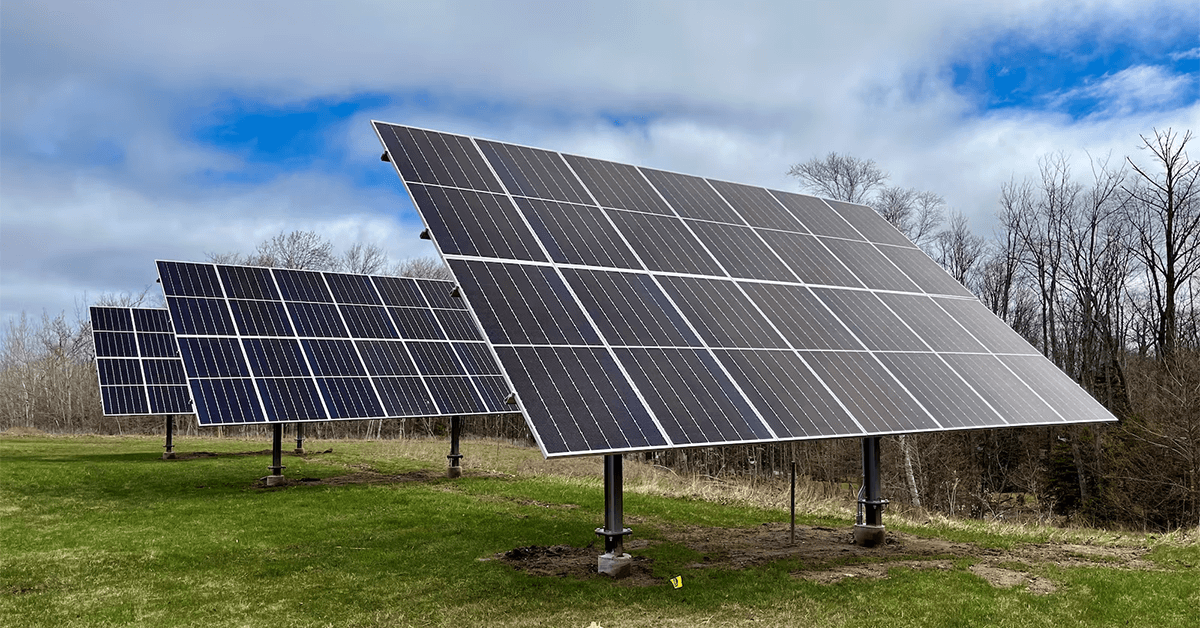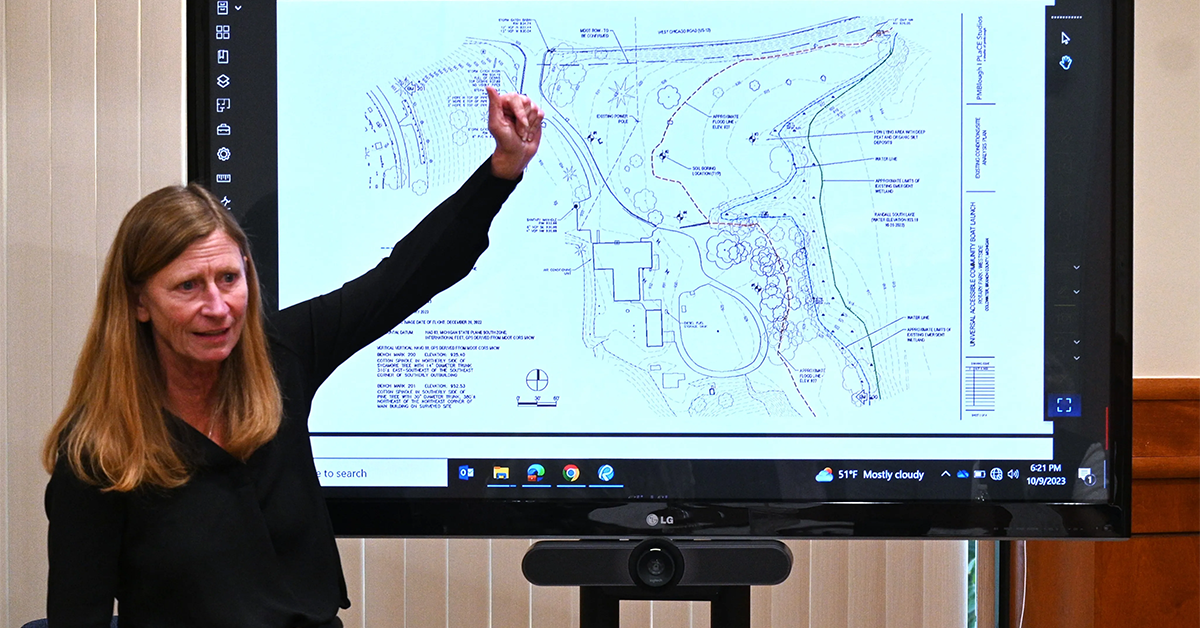Prefabricated Restrooms Approved for Rotary Park, Funded by Cannabis Taxes

In a significant development for the Rotary Park renovation project, the Coldwater City Council approved a plan last night to purchase a prefabricated restroom building. This decision marks the initial component of Phase 1 of the Rotary Park Redevelopment Project.
City Manager Keith Baker and the project's landscape architect highlighted the benefits of choosing a prefabricated structure. The 10-foot by 17-foot facility, which includes two unisex bathrooms, is a cost-effective solution that allows for quick and efficient installation. Prefabricated restrooms are particularly advantageous in areas with poor soil conditions and are designed to reduce vandalism and maintenance costs. The restrooms are expected to be delivered within 12 to 16 weeks.
A notable aspect of this project is its funding source. The Rotary Park renovation is financed by Coldwater's allocation from the State of Michigan's cannabis tax revenue, as outlined in the 2024-2025 city budget. The use of cannabis sales taxes for community projects like this reflects the growing impact of cannabis legalization on local infrastructure improvements.
Baker noted that the $152,270 cost of the prefabricated restrooms is significantly lower than the recently completed site-built downtown restroom building, underscoring the financial efficiency of this approach.
How the Cannabis Industry Can Lead with Hemp-Based Packaging

In an era where environmental sustainability is not just desired but demanded, the cannabis industry stands at a crossroads. Known for its therapeutic benefits and increasingly liberalized around the world, the cannabis sector also faces significant scrutiny over its environmental footprint. One major area where this industry can take a transformative step forward is in its packaging practices.
The Environmental Challenge
The cannabis industry, while innovative in its products and applications, often relies on conventional packaging materials that are far from eco-friendly. Plastics, which are commonly used, are not only non-biodegradable but also contribute significantly to global pollution. The pressing need to reduce this environmental burden has led to a call for more sustainable practices within the industry.
Why Hemp?
Hemp offers a compelling solution to these environmental challenges. As a cousin of the cannabis plant, hemp is biodegradable and can be engineered to be as durable and childproof as traditional plastics. This makes it an ideal candidate for developing sustainable packaging solutions. Furthermore, hemp-based packaging aligns with the ethos of the cannabis industry, which is rooted in health and wellness.
Benefits of Hemp Packaging:
- Biodegradability: Hemp products naturally break down, leaving minimal environmental impact.
- Sustainability: Hemp can be grown with relatively low water and pesticide needs, making it a more sustainable crop.
- Versatility: Advanced processing techniques can transform hemp into various forms, from paper-like textures to sturdy, plastic-like materials.
Economic Considerations
Despite the clear environmental benefits, the adoption of hemp packaging in the cannabis industry faces economic hurdles. Currently, sustainable packaging options, including those made from hemp, tend to be more expensive than traditional materials. This cost differential can deter cannabis companies, especially in a competitive market where price sensitivity among consumers remains high.
For instance, if a cannabis product with hemp-based packaging costs more, consumers may opt for a cheaper alternative, despite their professed preferences for sustainability. Brands like Dutch Touch Genetics and Wyld have started integrating sustainable practices, using reusable glass jars and fully compostable paper-based packaging, but these are exceptions rather than the norm.
The Path Forward
For the cannabis industry to lead in sustainability, particularly in packaging, a multifaceted approach is needed:
-
Consumer Education: Informing consumers about the benefits of sustainable packaging and how it contributes to a healthier planet may encourage more individuals to choose products that are slightly more expensive but environmentally friendly.
-
Regulatory Incentives: Governments could offer incentives to companies that switch to sustainable packaging, making it a more financially viable option.
-
Industry Collaboration: Companies within the cannabis industry could collaborate to share the costs and innovations associated with sustainable packaging.
-
Research and Development: Continued investment in improving the cost-effectiveness and performance of hemp packaging materials is essential.
Conclusion
The cannabis industry has the potential to be at the forefront of sustainable packaging innovations. By embracing hemp-based solutions, the industry can significantly reduce its environmental impact while setting a standard for others to follow. It's time for the sector to revisit its roots—not just as a business but as a sustainable practice that contributes positively to the planet.
Innovative Solar Project in Marquette Township Funded by Cannabis Excise Taxes

Marquette Township in Michigan has recently unveiled an innovative, ground-mounted solar energy system (SES) at the township hall, funded partly by state cannabis excise tax revenues. This initiative is part of the township's broader efforts to embrace sustainability and use unexpected fiscal benefits for community improvement projects.
Installed by Peninsula Solar, the system was designed with the unique challenges of northern climates in mind. The 20.16 kW solar array features a proprietary racking system that allows it to tilt on a vertical axis, facilitating snow shedding in winter and maximizing energy production year-round. The bifacial panels employed in the system can absorb light from both sides, enhancing the output by capturing reflected light from the snowy ground.
The SES project was made financially feasible through a federal program that offers a 30% direct reimbursement to municipal and non-profit organizations installing solar energy systems. Marquette Township's decision to allocate unanticipated cannabis tax revenue towards this project underscores an innovative approach to utilizing these funds. These revenues, derived from the local licensed cannabis facilities, are not regularly included in the township's budget, providing a flexible financial resource for beneficial community-oriented projects.
Jon Kangas, the Marquette Township manager, emphasized that such projects, while highly desirable, typically fall outside the essential needs category. By channeling these additional funds into the SES, the township aims to decrease long-term energy costs at the township hall, thereby extending financial benefits to taxpayers.
The investment in the solar system is expected to yield a return within 10 to 14 years. Additionally, the system includes 3-phase inverters that facilitate grid interconnection, allowing the township to feed excess power back to the local power grid and receive credits, further enhancing the project's sustainability and cost-effectiveness.
Furthermore, the township plans to cultivate native plant species around the township hall to protect the new panels and promote ecological sustainability. These efforts reflect Marquette Township's commitment to both environmental stewardship and fiscal prudence, using innovative funding solutions to benefit the community.
How Marijuana Tax Revenues are Transforming Coldwater's Rotary Park

In a clear demonstration of how marijuana tax revenues can play a pivotal role in community development, Coldwater's Rotary Park is undergoing significant renovations funded by these funds. Here's how this initiative is helping reshape the local landscape:
The Backdrop
Coldwater City Council has channelled its marijuana excise tax revenues to revamp the Rotary Park, which is divided by the Coldwater River on South Lake. In a unanimous decision, the council has decided to proceed with the construction of a new boat launch and marina docks on the park's west side.
Understanding the Landscape
The park's current boat ramp is not just inconveniently located on the east side, launching directly into the river channel, but it's also unsafe. Moreover, the entrance to this launch and its parking area near the U.S. 12 bridge pose safety concerns due to poor sightlines.
Fortunately, the revised plan involves shifting this launch to the park's west side, using the entrance to Oak Grover Cemetery's south section. This strategic move not only improves safety but also optimizes the use of the park's expansive terrain.
Overcoming Natural Challenges
The park's natural soil structure threw a curveball during the initial phase. With soil borings revealing deep peat deposits and organic silt underneath the topsoil, constructing a stable asphalt parking lot seemed daunting. However, recreational architect Pam Blough proposed a viable solution – constructing parking lots using solid supported concrete or a permeable rock material system, similar to a successful project she handled in Wyoming city.
Moreover, while much of the area along the water is protected wetlands, the region near the U.S. 12 bridge remains an exception. The plan involves establishing a twin concrete launch ramp in this area, while relocating the current canoe/kayak launch across the river.
A Vision for Tomorrow
Aside from these major developments, the larger wooded east side of the park is slated for expansion, promising a host of recreational options – from trails and fishing docks to open spaces with potential for other enhancements.
Further funding avenues are also being explored. With the city having already pledged over $750,000 from marijuana excise tax revenues for the park's development, additional funds from a March 2025 marijuana excise tax payment will be matched with a state grant to finance the east side development.
In Conclusion
The story of Rotary Park in Coldwater offers a compelling case for the potential benefits of marijuana tax revenues. With the park's transformation set to be completed by the summer of 2024, Coldwater's residents will soon witness a direct positive impact of these funds on their community. The council's vision and the strategic use of tax revenues set a precedent for other cities to consider similar initiatives, leveraging such resources for the greater good.

 Helpful Links
Helpful Links